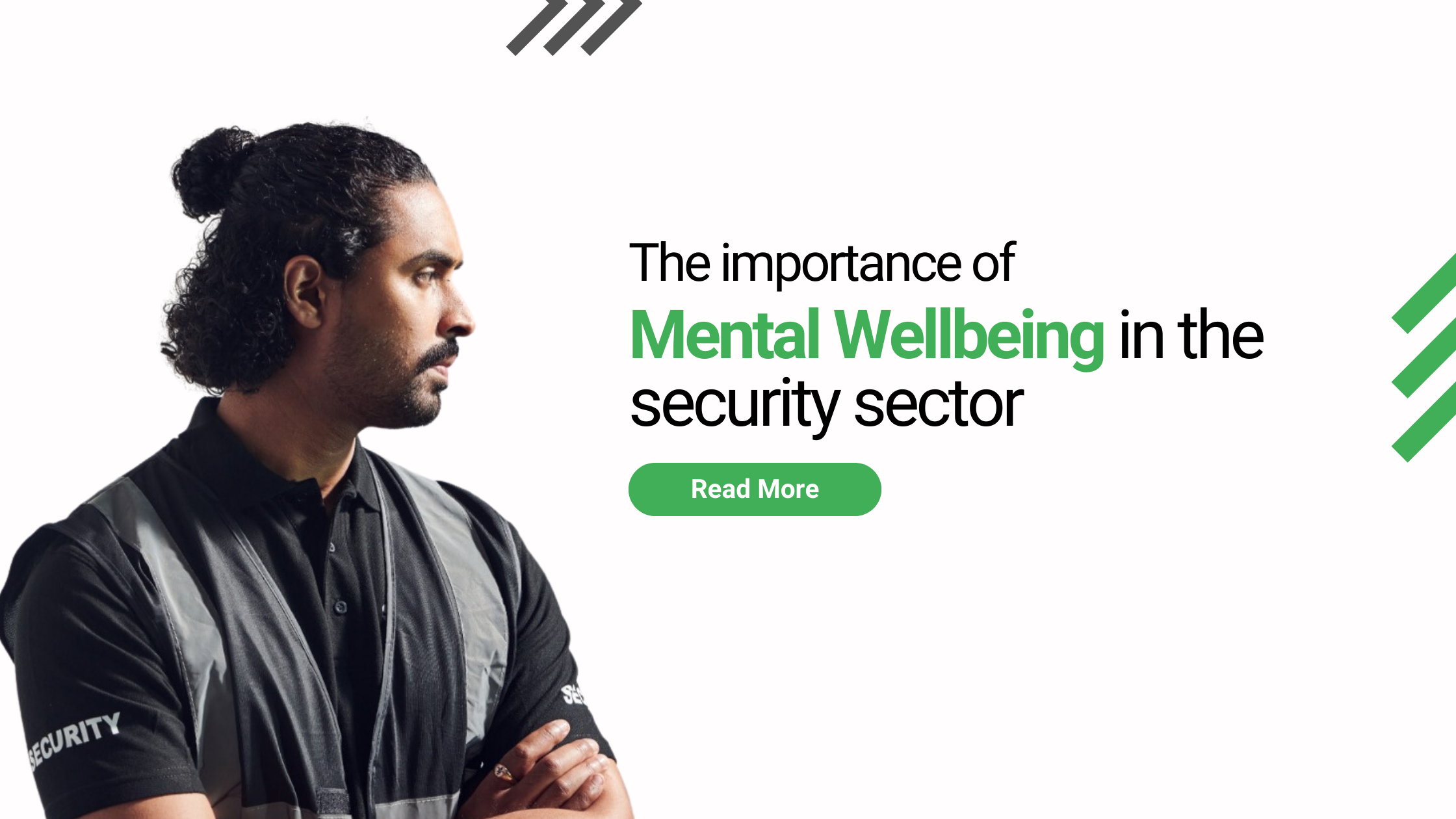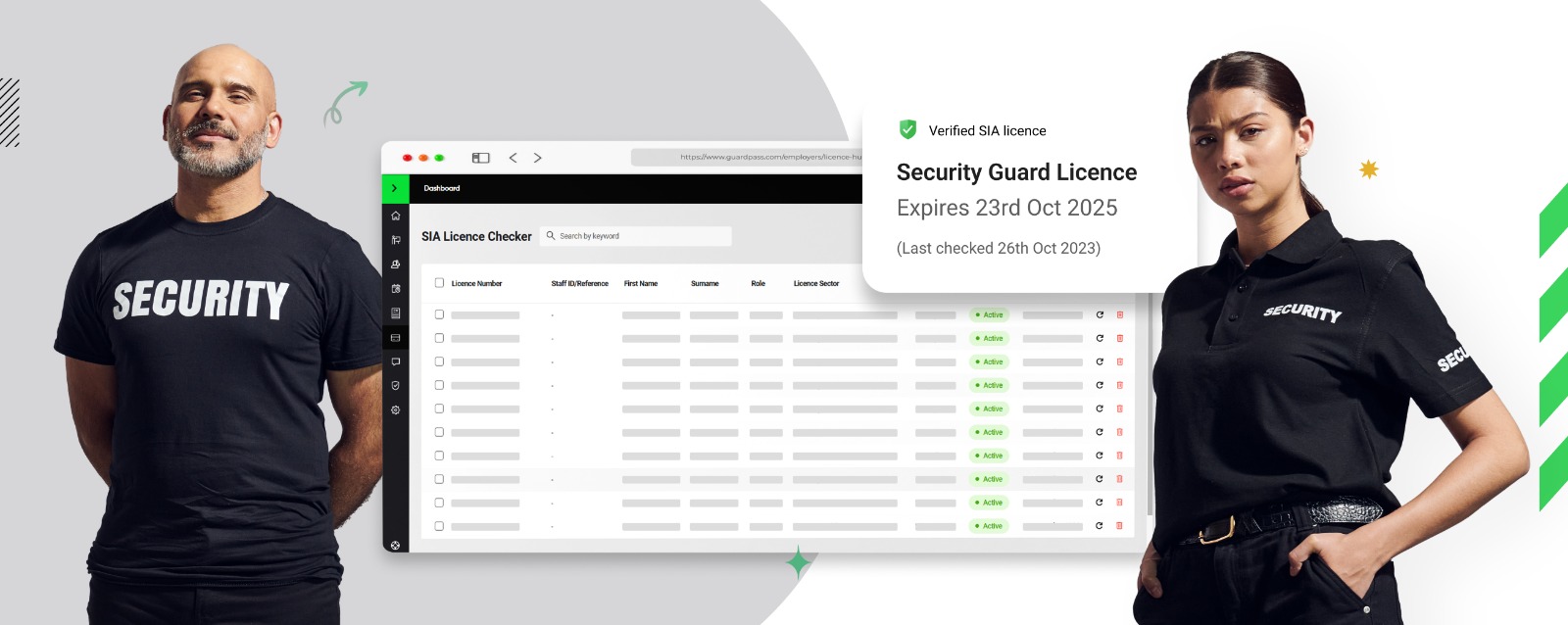In the security world, a sharp mindset is a non-negotiable requirement. But what about the wellbeing of the people who safeguard us? Behind the scenes of the security sector, a pressing issue often goes unnoticed – our security professionals’ mental health and wellbeing. The job demands are high, and the pressure is constant. This blog dives into the heart of the security industry and explores the importance of mental wellbeing.
The intense demands of the security field
The past few years have been relentless for security professionals. A global pandemic, economic instability, and shifts in work dynamics have taken a toll. A recent survey found that a staggering 78% of security employees reported experiencing symptoms of burnout this year alone. One in four businesses has expressed worry about their staff’s wellbeing. These numbers paint a stark picture of the challenges security professionals face.
A holistic approach to wellbeing
Positive workplace cultures are built on a foundation where everyone feels they belong, where they are valued, where their job has meaning and manageability, and where they have the necessary tools and relationships to thrive.
Every security organisation has its unique approach to workforce wellbeing and inclusion, but one thing is clear: diversity and inclusion must be seamlessly woven into your workforce wellbeing strategy. Equity and fairness are integral to the security industry. This includes fair pay, equal opportunities for development and promotions, and recognising and acknowledging everyone’s contributions.
Diversity and inclusion: An essential aspect
Recent research underscores the profound impact of diversity and inclusion on security staff wellbeing. Shockingly, approximately 120,000 security professionals from racialised communities left their jobs due to racism, which takes a toll on mental health. Additionally, the underrepresentation of women in senior management positions in security (only 41%) despite making up 48% of the working population adds to the complexity. The stress of managing daily expenses, especially for women who earn less than men, on average, further burdens their mental health.
For single parents or individuals living with disabilities, the situation becomes even more challenging. All these factors highlight the importance of diversity and inclusion and their direct impact on security professionals’ mental health and wellbeing.
A guide for security pros
In the high-stakes security world, maintaining your mental wellbeing is not just an option; it’s a necessity. The pressure can be relentless, the hours unforgiving, and the stakes sky-high. But fear not, we’ve got your back. We’ll explore some practical tips to help you keep your mental health in check.
✅ Power of pause: You’re constantly on alert, but remember to take breaks. Even a few minutes of deep breathing or a short stroll can work wonders. It’s not slacking off; it’s recharging your mental batteries.
✅ Connect with your fellows: Security professionals often share a unique bond forged through shared challenges. Reach out to your peers; they understand the struggles. A good chat over coffee can be therapeutic.
✅ Switch off when off-duty: Your job might demand vigilance, but your downtime deserves peace. When you’re off-duty, disconnect from work as much as possible. Engage in hobbies, spend time with loved ones, and let your mind rest.
✅ Stay physically active: Regular exercise does wonders for your mental health. Whether it’s hitting the gym, practising yoga, or running, physical activity helps release stress and boost your mood. Make sleep a priority, even if your schedule is demanding. Establish a bedtime routine and create a sleep-conducive environment.
✅ Stay informed, but don’t obsess: It’s crucial to stay updated on the latest security developments and avoid constant news consumption. Obsessing over negativity can take a toll on your mental health. Stay informed, but know when to step back.
Practical steps for security employers
Here are some practical steps tailored for the security employers:
✅ Commit wholeheartedly: Explicitly commit to equity, inclusion, and wellbeing. Ensure you have diverse teams at all levels and demonstrate a clear plan to eradicate inequalities, including pay gaps.
✅ Embed inclusion and wellbeing: Incorporate inclusion and wellbeing into job design, onboarding processes, one-on-one meetings, and health checks.
✅ Foster a sense of belonging: Create a culture where everyone feels like they belong, are seen, and are valued. Encourage your employees to bring their authentic selves to work every day.
✅ Flexible work arrangements: Offer flexible working options that enable people to balance work and home life.
✅ Listen and engage: Create a listening, engagement, and consultation culture. Employee resource groups can help create direct pathways to senior management, ensuring that their needs and wants are understood.
✅ Equip line managers: Provide line managers with the skills they need to be inclusive in their leadership. Encourage meaningful conversations about wellbeing and mental health in their daily work.
✅ Prioritise social connection: Recognize that individual lived experiences drive what feels good and helpful for each person. Find ways to maintain social relations, even in a changing work environment.
✅ Take purposeful action: Be willing to reassess and adapt your wellbeing policies if necessary. Ensure that your workforce has access to up-to-date mental health training.
World Mental Health Day: A global priority
As we celebrate World Mental Health Day on October 10th, remember this year’s theme: making mental health and wellbeing a priority for the security industry. Mental wellbeing should be at the forefront of our concerns within the security sector.
In conclusion, the security industry is not just about physical protection; it’s also about safeguarding the mental wellbeing of those who protect us. GuardPass stands firmly behind this cause and advocates for mental health being. We can create a more positive workplace culture, improving performance and better lives for security professionals. These steps provide a roadmap for making this vital change, ensuring that mental health becomes a top priority within the security sector.
Estimated reading time: 5 minutes



